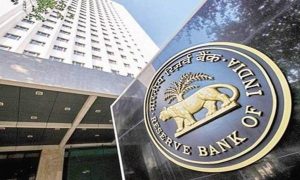NEW DELHI: The Indian economy is likely to achieve a growth rate of 7% in fiscal year 2025 after growing at or above 7% in 2023-24, driven by resilient domestic demand despite risks and uncertainties in the global economic landscape, according to a review of the economy unveiled on Monday.
Read More: These 6 focused mutual funds delivered over 18% CAGR returns in the past five years
It also said India can aspire to become a $7 trillion economy in the next six-seven years (by 2030) asserting that this would be a significant milestone in the journey to delivering quality of life and standard of living that match and exceed the aspirations of the Indian people.
“If the prognosis for FY25 turns out to be right, that will mark the fourth year post-pandemic that the Indian economy will have grown at or over 7%. That would be an impressive achievement, testifying to the resilience and potential of the Indian economy. It augurs well for the future,” V Anantha Nageswaran, chief economic advisor in the finance ministry said in the review. National Statistical Office (NSO) estimates the economy will grow 7.3% in 2023-24 while Reserve Bank of India (RBI) has projected a 7% growth rate for the current fiscal year.
The review said the strength of domestic demand has driven the economy to a 7% plus growth rate in the last three years. The robustness seen in domestic demand, namely, private consumption and investment, traces its origin to the reforms and measures implemented by the government over the last ten years, it said.
“The supply side has also been strengthened with investment in infrastructure – physical and digital – and measures that aim to boost manufacturing. These have combined to provide an impetus to economic activity in the country,” according to the review.
“Only the elevated risk of geopolitical conflicts is an area of concern. Priority areas for future reforms include skilling, learning outcomes, health, energy security, reduction in compliance burden for MSMEs, and gender balancing in the labour force,” it said.
It said reforms undertaken over the last ten years by the Centre have formed the foundation of a resilient, partnership-based governance ecosystem and have restored the ability of the economy to grow healthily.
“There are good reasons to believe India’s economic and financial cycles have become longer and stronger. Consequently, India is poised for sustained brisk growth in coming years,” according to the review.
It identified four risks including increased geo-economic fragmentation and the slowdown of hyper-globalisation, which are likely to result in further friend-shoring and onshoring, which are already having repercussions on global trade and, subsequently, on global growth.
It said the trade-off between energy security and economic growth versus energy transition is a multifaceted issue having various dimensions: geopolitical, technological, fiscal, economic and social, and the policy actions being pursued by individual countries impacting other economies.
Read More:- Mutual Funds vs FDs vs Savings Accounts vs Others: Where do Indians save their money today?
The review said the advent of Artificial Intelligence (AI) poses a big challenge to governments around the world due to the questions it poses to employment, particularly in services sectors.





































